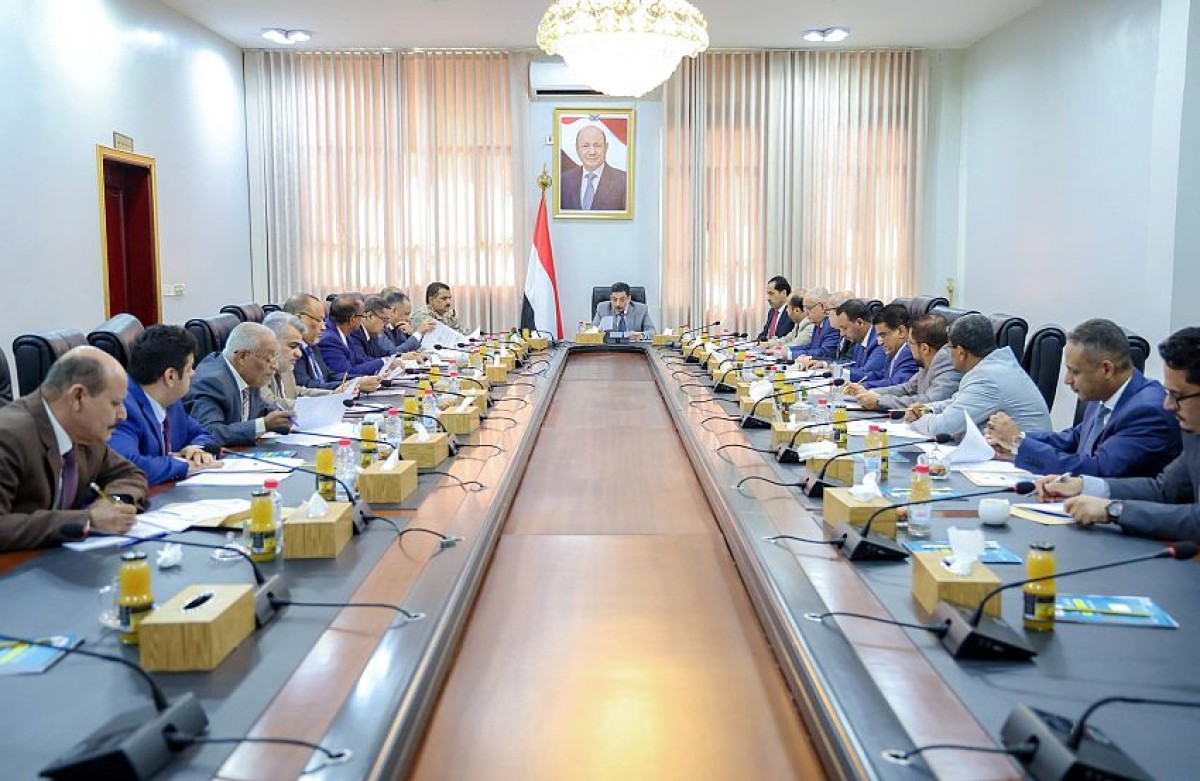The Council of Ministers approves in an extraordinary meeting the government’s economic plan for urgent priorities


The Council of Ministers, in an extraordinary meeting held today, Thursday, chaired by Prime Minister Dr. Ahmed Awad bin Mubarak, approved the draft government economic plan for urgent priorities and its implementation matrix.
In the meeting, which was held via video conference, and with the participation of the Governor of the Central Bank of Yemen, the Council emphasized understanding the comments submitted by Council members on the plan, leading to an effective government response to confront the economic challenges responsibly and mitigate the catastrophic humanitarian consequences created by the Iranian-backed terrorist Houthi militia. Noting the efforts of the ministerial committee charged with preparing the plan, headed by the Minister of Finance and the Technical Committee, and taking into account the five tracks of the Prime Minister’s priorities and the economic and financial reform program. And the cash agreement signed with the Arab Monetary Fund and government plans related to urgently dealing with the economic and service situation, strengthening anti-corruption efforts, improving public revenues, reducing expenditures, and implementing comprehensive reforms and understandings with Yemen’s partners from donor countries and organizations.
The Council of Ministers formed a higher supervisory committee headed by the Prime Minister and membership of the Governor of the Central Bank and the Ministers of Finance, Civil Service and Insurance, Planning and International Cooperation, Transport, Electricity, Industry and Trade, Local Administration, Oil and Minerals, the General Secretariat of the Council of Ministers and the Prime Minister’s Office.< /p>
The committee is responsible for following up and supervising the level of completion of the government plan to deal with developments and its urgent priorities, reviewing the reports submitted by the technical committee and evaluating the level of progress in completing the executive matrix of the government plan, in addition to reviewing the difficulties facing the process of implementing the plan and proposing appropriate treatments and working on Mobilizing the necessary support and funding to implement the plan.
The Council assigned the Chairman of the Supreme Supervisory Committee to submit reports on the level of progress and achievement in implementing the government plan to the Presidential Leadership Council, the difficulties and challenges facing the progress of implementation, and proposals for remediation.
The Council also approved the formation of a technical committee from the main and relevant bodies, which will develop the appropriate mechanism and models for implementing the plans of the bodies stipulated in the matrix in order to facilitate the implementation, follow-up and evaluation process, and submit reports to the Supreme Supervisory Committee on the level of implementation of the plan, the obstacles facing its implementation, and proposals and solutions. .
The Council of Ministers directed the relevant authorities to prepare a quarterly chronic plan to implement policies, procedures and verification indicators and arrange them according to priorities.
The Council of Ministers held an extensive discussion on the procedures and decisions required to strengthen and enhance the role and position of the government in facing the exceptional challenges that exist, rearranging priorities according to urgent needs and available capabilities, and coordinating and integrating efforts to confront the intertwined challenges, focusing on the priority of development, and completing the battle to restore state institutions. And ending the Iranian-backed Houthi coup, in addition to regional and international developments and changes and the vision for dealing with them.
The Council affirmed the government’s commitment to working to implement the directives of the Presidential Leadership Council, in accelerating procedures for dealing with the economic situation, containing the repercussions of the systematic measures of the Houthi militias destroying the national economy, and removing all obstacles and restrictions facing the humanitarian work community.
He also stressed raising the level of revenues, improving the state’s access to its sovereign resources, combating corruption, enhancing transparency and accountability, and controlling the prices of services and basic commodities.